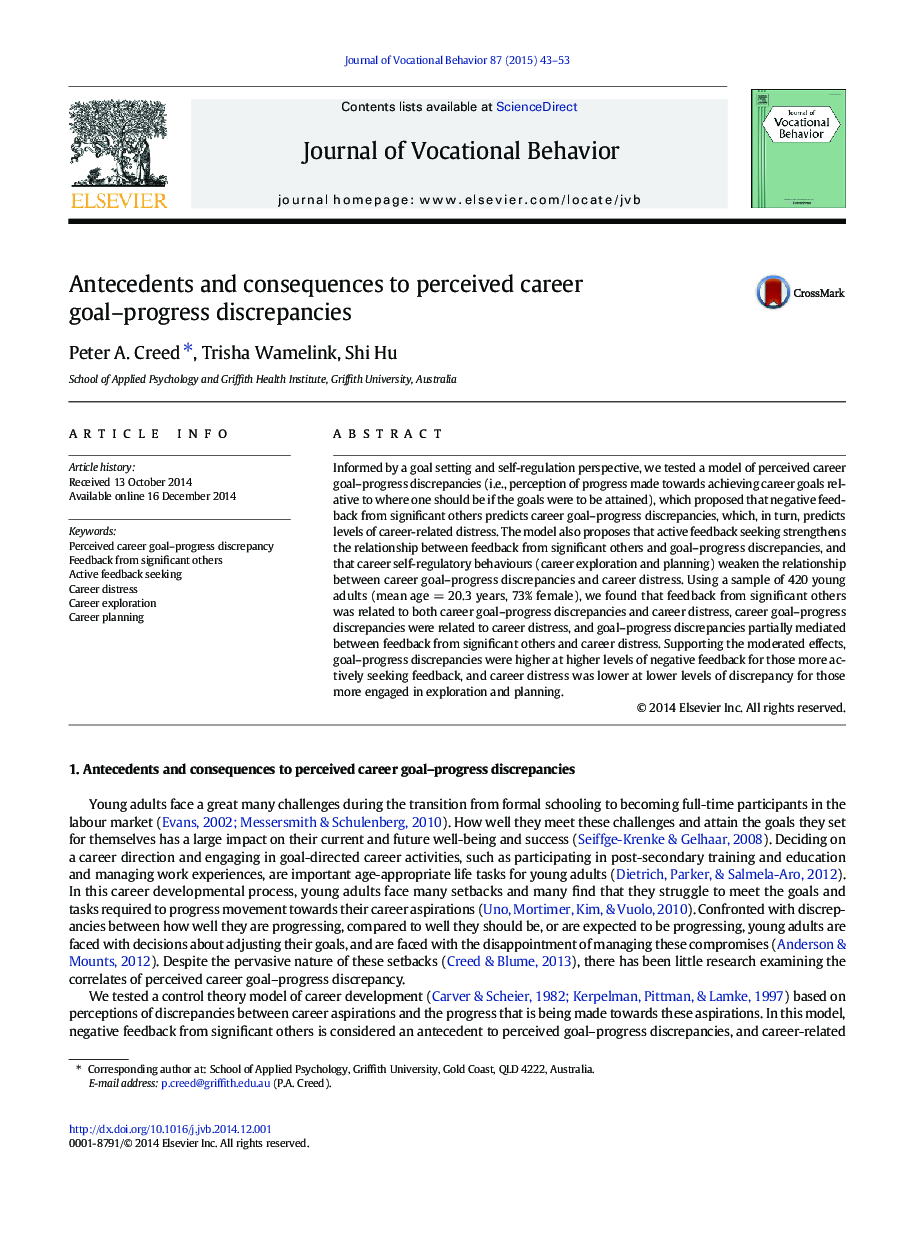| کد مقاله | کد نشریه | سال انتشار | مقاله انگلیسی | نسخه تمام متن |
|---|---|---|---|---|
| 886781 | 1471812 | 2015 | 11 صفحه PDF | دانلود رایگان |
• Appraisal of career goal–progress is stimulated by feedback from others.
• Negative feedback is related to more goal–progress discrepancies.
• More discrepancies are related to higher negative affect.
• Negative affect can be ameliorated by career engagement (e.g., exploration).
• Actively seeking feedback can exacerbate negative feedback from others.
Informed by a goal setting and self-regulation perspective, we tested a model of perceived career goal–progress discrepancies (i.e., perception of progress made towards achieving career goals relative to where one should be if the goals were to be attained), which proposed that negative feedback from significant others predicts career goal–progress discrepancies, which, in turn, predicts levels of career-related distress. The model also proposes that active feedback seeking strengthens the relationship between feedback from significant others and goal–progress discrepancies, and that career self-regulatory behaviours (career exploration and planning) weaken the relationship between career goal–progress discrepancies and career distress. Using a sample of 420 young adults (mean age = 20.3 years, 73% female), we found that feedback from significant others was related to both career goal–progress discrepancies and career distress, career goal–progress discrepancies were related to career distress, and goal–progress discrepancies partially mediated between feedback from significant others and career distress. Supporting the moderated effects, goal–progress discrepancies were higher at higher levels of negative feedback for those more actively seeking feedback, and career distress was lower at lower levels of discrepancy for those more engaged in exploration and planning.
Journal: Journal of Vocational Behavior - Volume 87, April 2015, Pages 43–53
